Retinol Vs Retinoid: What You Need To Know
Discover the skincare benefits of retinol and retinoids and how they enhance your skin's radiance.
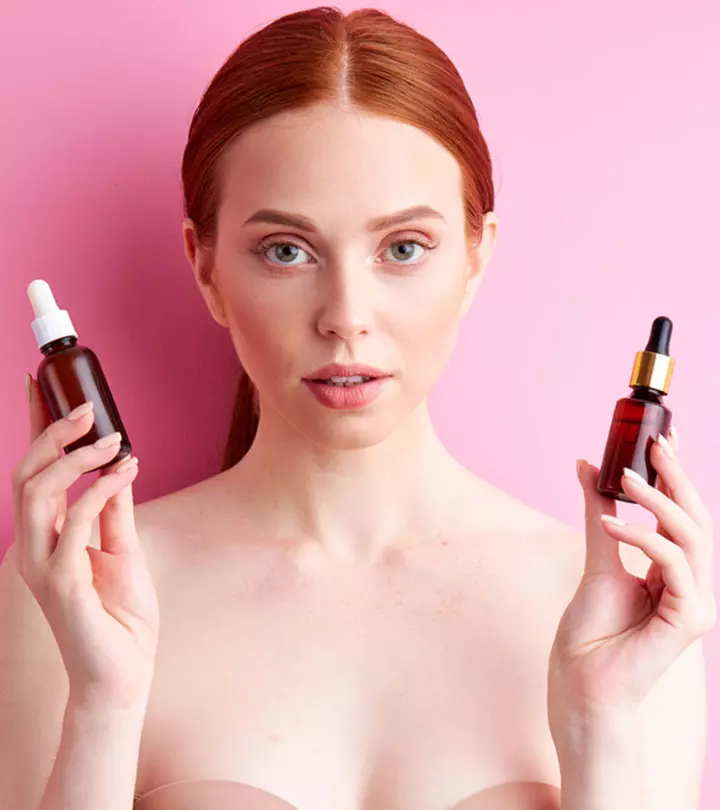
Image: ShutterStock
If you found yourself in the middle of the never-ending retinol vs. retinoid debate, you are not alone. People often confuse the two and use them interchangeably. However, both are vitamin A derivatives and are the same, except for a few differences. This article attempts to settle the debate and clear your confusion. Keep reading to learn the differences between retinol and retinoid and understand which one is good for your skin.

In This Article
What Is Retinoid?
Retinoid is a vitamin A derivative and umbrella term for all vitamin A derivatives, including retinoic acid, retinol, retinol propionate (pro-retinol), and retinol palmitate.
Dermatologists prescribe retinoids for acne and improve skin health due to their stunning results on most skin types. It is often confused with retinol.
Allison Barbera, a blogger, takes us on her journey with retinoid. She shares her cautious approach, including a patch test and delayed initiation to avoid sun sensitivity. And she also adds, “There are great products in the skincare world that can moisturize, exfoliate, brighten, etc. But I think for serious anti-aging results, prescription retinoids are the way to go (i).”
Key Takeaways
- While both retinol and retinoids are incredibly powerful anti-aging ingredients with various skin benefits, you can select between them based on your skin concern.
- These two ingredients should not be combined with other potent compounds that might dry out the skin and cause irritation, such as benzoyl peroxide, AHAs and BHAs, vitamin C, and other drying ingredients.
- If you use retinoids and retinol daily and your skin is not adapted to them, you may experience redness, skin peeling, flaking, irritation, and dryness.
- Also, retinol and retinoids are not safe to use during pregnancy. If you have recently given birth or are breastfeeding, stay away from them.
What Is Retinol?
Retinol is a type of retinoid and much milder than retinoid. You do not need a prescription to get retinol for acne, and it is a common ingredient in OTC skin care products. However, retinol differs from retinoids at a molecular level, and although both have similar benefits, the effects of retinol are much milder than retinoids.
 Trivia
TriviaLet’s understand it in detail in the next section.
Retinol Vs. Retinoids: How They Work And The Benefits
The similarity between the two ingredients is – they provide the same benefits. However, the rate at which you may see the improvements might differ due to the difference in strengths.
Vitamin A is fat-soluble. When you apply retinoids or retinol to your skin, it penetrates the stratum corneum (the topmost layer of the epidermis) and the dermis (the second layer). It binds with the receptors in the keratinocytes (epidermal cells) and stimulates them and the fibroblasts (cells that produce collagen). In other words, retinoids and retinol stimulate the skin cells to (1):
- Promote collagen synthesis
- Improve skin texture
- Reduce wrinkles and fine lines
- Reduce transepidermal water loss (TEWL) and dryness
- Reduce pigmentation and brighten the skin
- Soothe acne and inflammation
- Promote cell turnover rate
OTC retinol products are often combined with other ingredients. These products are gentler than prescription retinoids; however, you have to be patient and use them continuously to see visible results.
The side effects of retinol and retinoids are also similar, except for the intensity. If you start using any of them without knowing the right concentration and the proper way, you may experience side effects. Let’s take a look.
Side Effects Of Retinoids And Retinol
If your skin is not used to retinoids and retinol and if you use them every day, you may experience:
- Redness
- Skin peeling
- Flaking
- Skin irritation
- Dryness
These symptoms may occur due to the increase in skin cell turnover rate. The best way to avoid this adverse effect is to start with the lowest concentration of retinol. If you are using prescription retinoids, the doctor will gradually increase the strength, depending on the skin tolerance levels and condition.
Some other side effects of retinoids include:
- Acne flare-up
- Photosensitivity
- Discoloration of skin
- Stinging
- Eczema flares up
However, retinol and retinoids are not safe to use during pregnancy. Avoid them if you have conceived or are breastfeeding.
If both retinol and retinoids have similar benefits, why not use any of them interchangeably? How do the two ingredients differ? Let’s find out.
Retinoids And Retinol: How They Differ?
Retinol and retinoids differ in two aspects:
1. The Strength Of The Ingredient
Typically, most prescription retinoids have a higher potency than retinol. They are available in topical and oral form, but only on prescription. Tretinoin for acne is often prescribed to combat those pesky zits. Tazarotene is another option.
Retinol is the mildest of all retinoids, and that is why it is often suitable for sensitive and dry skin. However, the way your skin will react to retinol depends on how it can handle the ingredient. Usually, OTC skin care products contain retinol in concentrations between 0.00015% and 0.3% (1). So, you can start with the lowest concentration.
2. The Time Taken To Show Results
Retinol converts to retinoic acid through a two-step oxidation process. Due to this, retinol takes longer to show visible results as opposed to other types of retinoids, which are potent and show results faster. Retinol products may take at least three months to show results, while most retinoids may give you visible results within six weeks.
There are certain things you need to keep in mind when using retinol or retinoids.
How To Use Retinoids Correctly
Remember that retinoids and retinol can make your skin photosensitive. So, you cannot skip sunscreen lotion if you are using retinoids during the daytime. Here are a few more guidelines:
- Always use retinol and retinoids at night to prevent photosensitivity and UV damage.
- If you must use a retinoid in the morning, follow it up with a good SPF sunscreen religiously.
- Gradually introduce your skin to retinoids or retinol. Start with the lowest strength and gradually increase the strength once your skin gets accustomed to it.
- Always follow up with a gentle moisturizer after applying retinoids (including retinol). This will help prevent dryness.
- Use retinol only a few times a week to understand your skin tolerance level.
- Do not mix retinoid with too many other ingredients or affect the ingredient’s efficacy (explained later in the article).
 Did You Know?
Did You Know?Depending on your skin concern and time frame of results, you can choose between retinol and retinoids.
Retinol Or Retinoid: Which One Is Better?
Go for retinol if:
- You have sensitive skin.
- You are using retinoids for the first time.
- You are looking for a preventive measure to improve your skin.
- You are just starting with an anti-aging skin care regimen.
Use potent retinoids (with doctor’s prescription) if:
- You have mature, oily, and comparatively resilient skin.
- You are dealing with deep wrinkles, fine lines, and blemishes.
- You have chronic acne flare-ups and scarring.
- You are looking for faster results.
Consult a dermatologist and get your skin analyzed to understand the proper strength of retinoids that might work for you. Chronic acne often requires oral antibiotics or retinoids. The doctor can suggest proper treatment measures depending on your skin condition. Retinoids are beneficial for the skin. However, they are not a one-size-fits-all – not everyone can use retinol and other retinoids.
Who Cannot Use Retinol And Retinoids?
Avoid topical retinoids and retinol if:
- You have sensitive and rosacea-prone skin.
- You have existing skin conditions.
- You are pregnant or breastfeeding.
Avoid oral retinoids if you are pregnant, as they may cause congenital disabilities in the baby (2).
Retinol or any other retinoids shouldn’t be used with several other ingredients as that may irritate the skin.
Which Products Cannot Be Used With Retinoids?
Retinol and retinoids are potent ingredients that accelerate cell regeneration. They shouldn’t be mixed with any other potent ingredients as that can dry out the skin and cause further irritation. Do not mix retinoids with:
- Benzoyl peroxide
- Alpha-hydroxy acids (AHAs) and Beta-hydroxy acids (BHAs)
- Vitamin C
- Drying ingredients like astringents, alcohol-based toners, medicated cleansers
Never use retinol and retinoids before waxing or shaving the skin and before laser treatments. The skin remains fragile after such treatments and procedures, and retinoids can further irritate it. Also, never mix multiple retinol products. This can cause inflammation.
Before layering your retinol with other products, make sure you read the ingredient list to see and avoid the above ingredients.
Understanding the role of vitamin A for skin is crucial before you go to comparing retinoids and retinol. Though retinoids and retinol are both derivatives of vitamin A, they differ in two aspects. Retinol is a milder form of retinoid and takes more time to show its results than the stronger retinoid. Both retinoids and retinol boost collagen production, reduce wrinkles and improve skin texture. However, exercise caution while using both products as it may result in redness and irritation. Pregnant women and nursing mothers should avoid using retinoids and retinol as they may cause congenital difficulties in babies. Consult a doctor to put the confusing debate of retinol vs. retinoids to rest.
Frequently Asked Questions
At what age should you start using retinol?
You can start using retinol in your mid-twenties or early thirties. This is the point at which elastin production begins to slow down. However, depending on your skin type, a dermatologist may advise you to start using retinol at different ages.
Can I use retinol product and retinoid product together?
A cosmetic retinol product can be used along with a retinoid product prescribed by a physician. You get to choose the order in which you use them. It’s important to remember that more is not always better. Stop using multiple retinol products or lower the frequency of use if your skin gets irritated.
Know the difference between retinoids and retinol in the video below. Gain insights into these ingredients from benefits to side effects, and choose the right skin care ingredient accordingly.
Personal Experience: Source
StyleCraze's articles are interwoven with authentic personal narratives that provide depth and resonance to our content. Below are the sources of the personal accounts referenced in this article.
(i) Forever Young: My Retinol Journeyhttps://allisonbarberamakeup.wordpress.com/2015/01/27/forever-young-my-retinol-journey/
References
Articles on StyleCraze are backed by verified information from peer-reviewed and academic research papers, reputed organizations, research institutions, and medical associations to ensure accuracy and relevance. Read our editorial policy to learn more.
- Retinoids: active molecules influencing skin structure formation in cosmetic and dermatological treatments
https://www.ncbi.nlm.nih.gov/labs/pmc/articles/PMC6791161/ - Retinoic Acid Embryopathy
https://www.nejm.org/doi/full/10.1056/nejm198510033131401
Read full bio of Dr. Manasi Shirolikar
Read full bio of Ramona Sinha
Read full bio of Eshna Das
Read full bio of Monomita Chakraborty







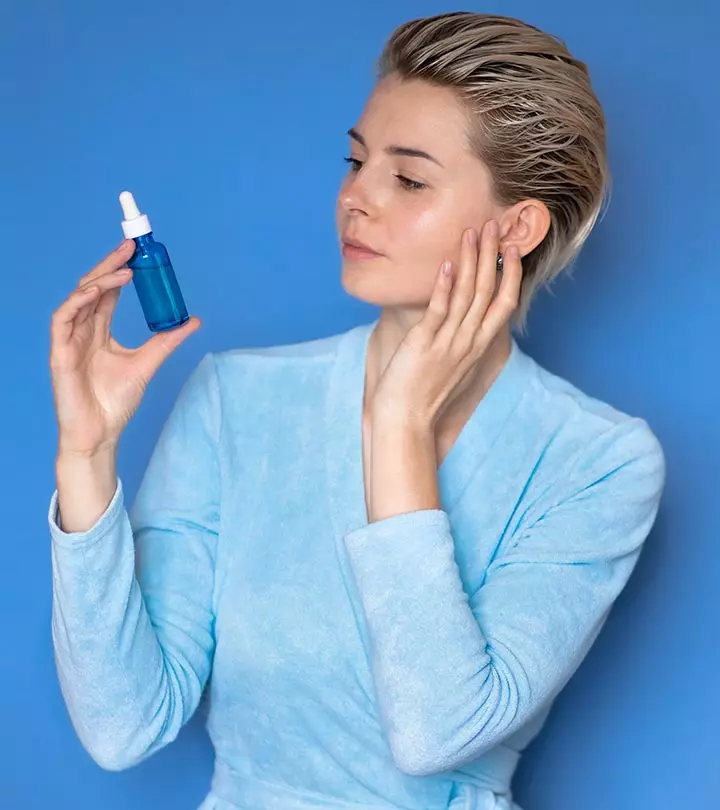
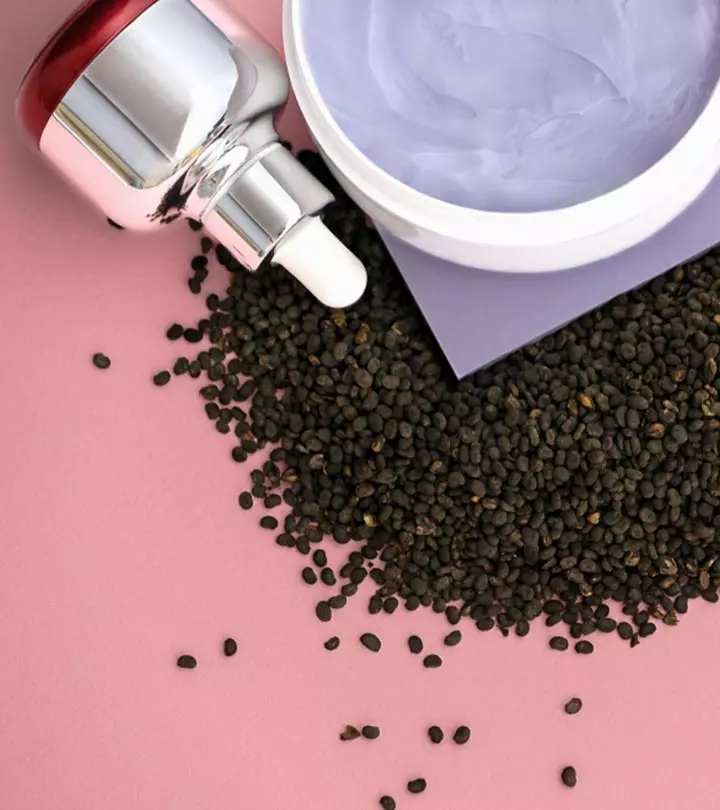
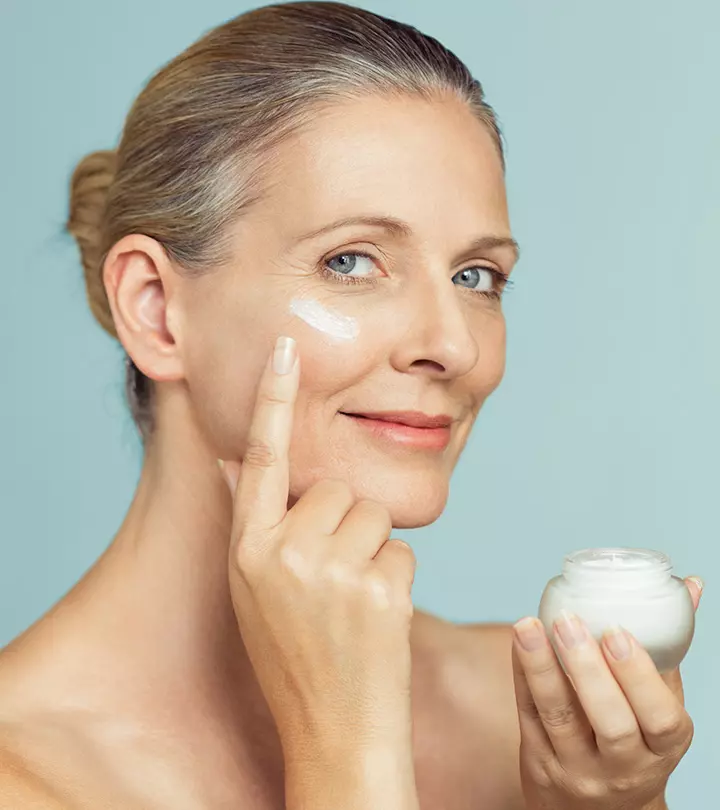

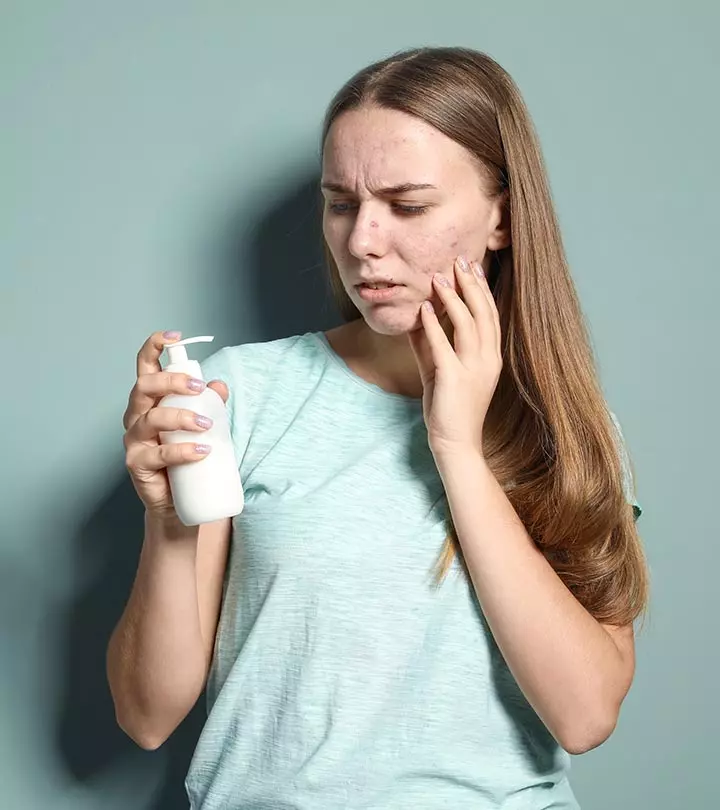
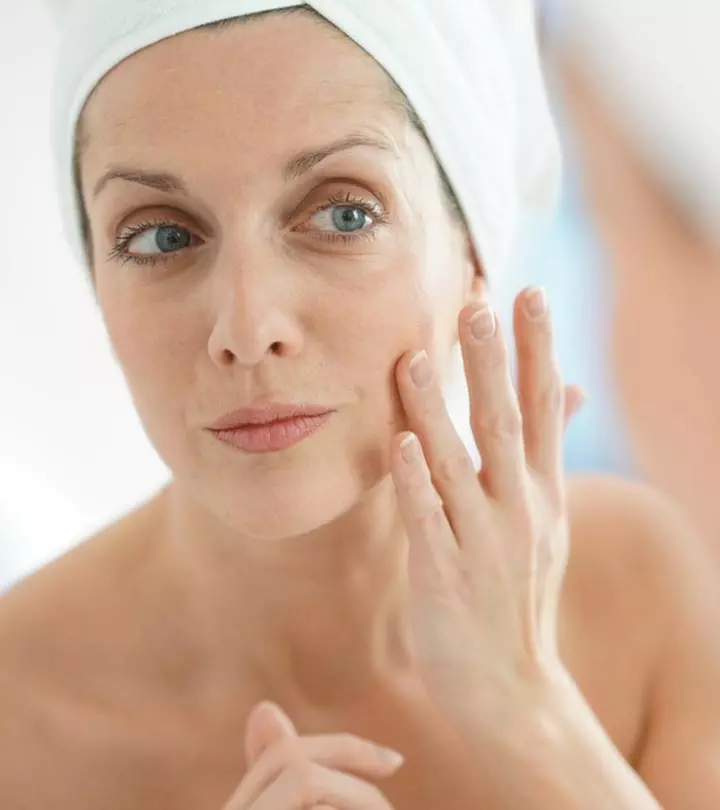

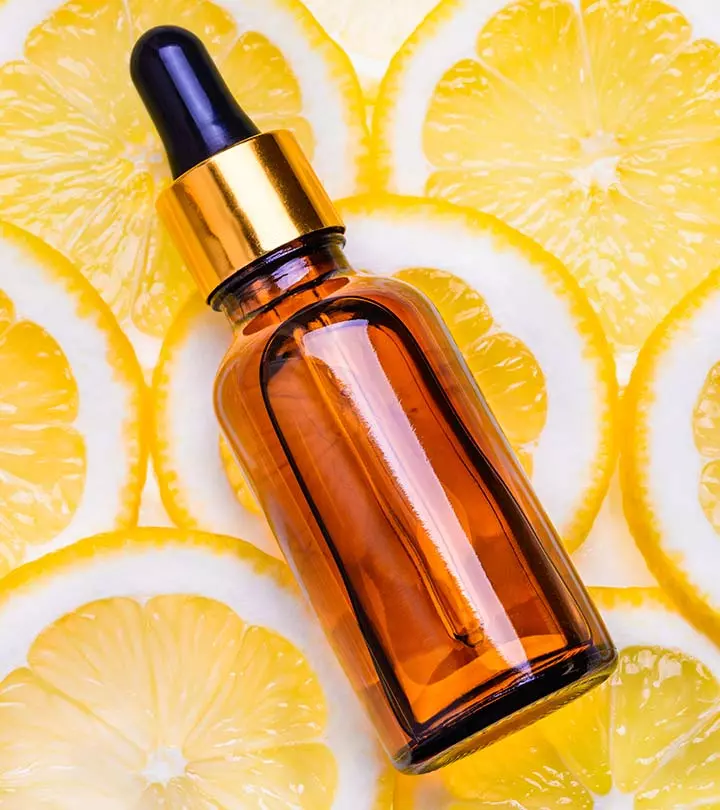



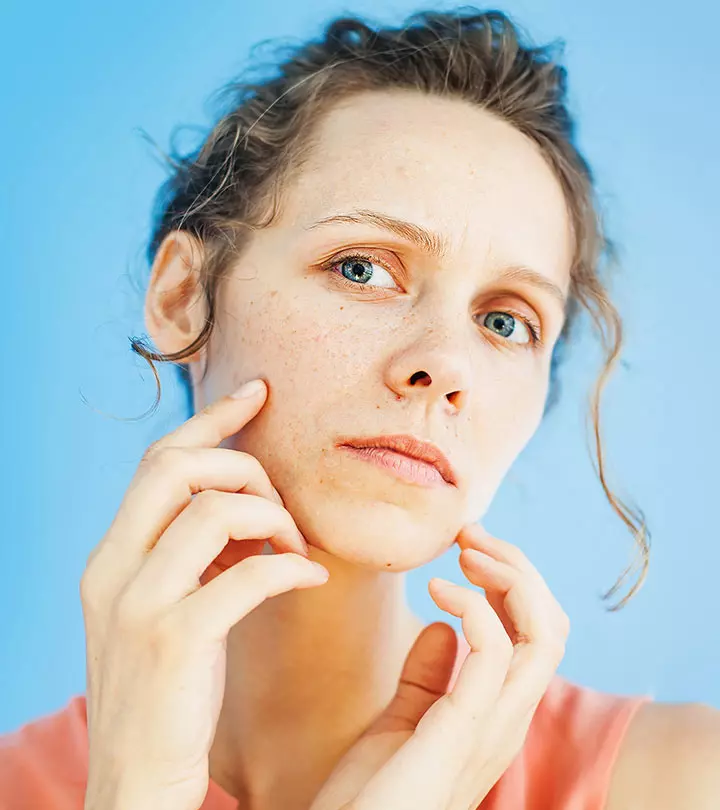
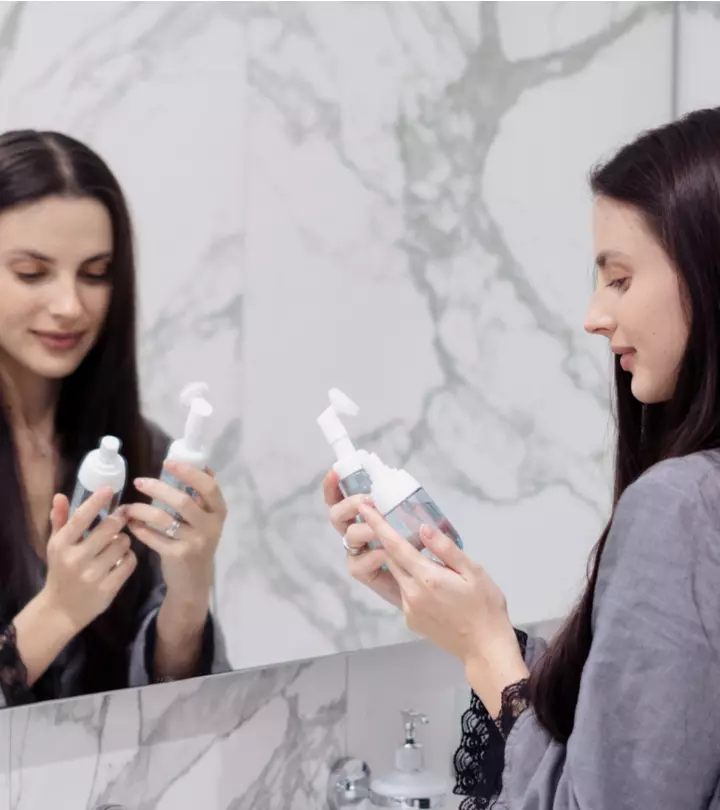

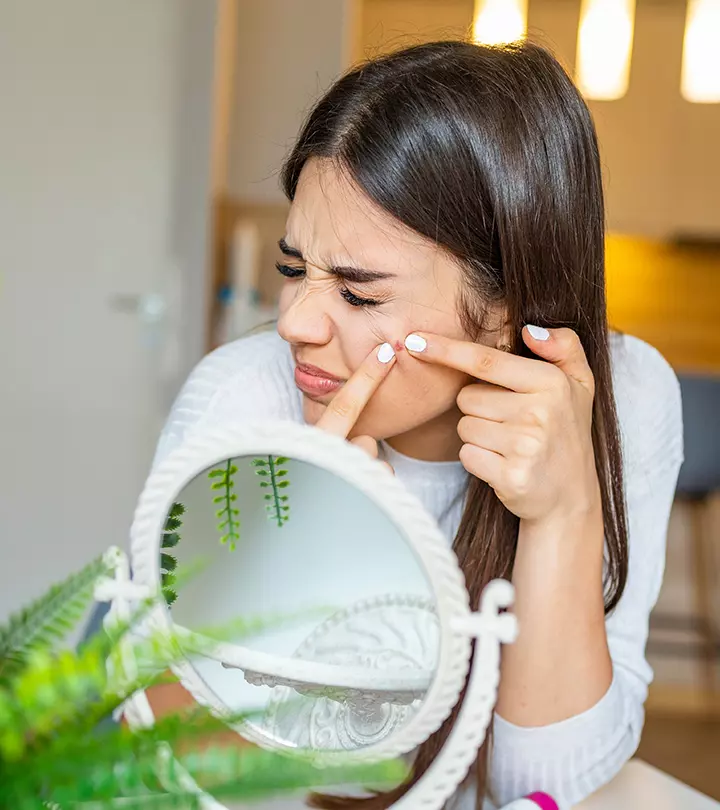
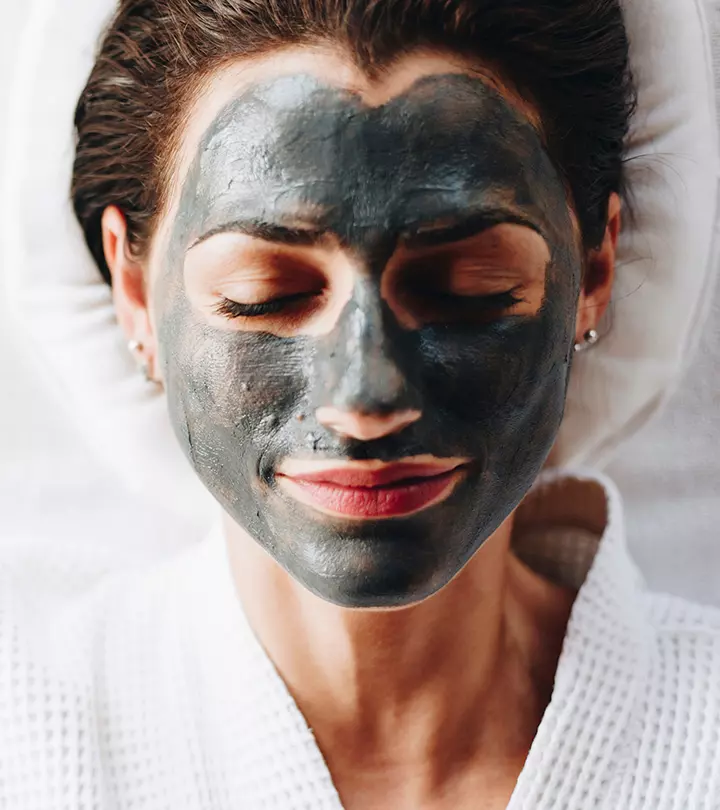

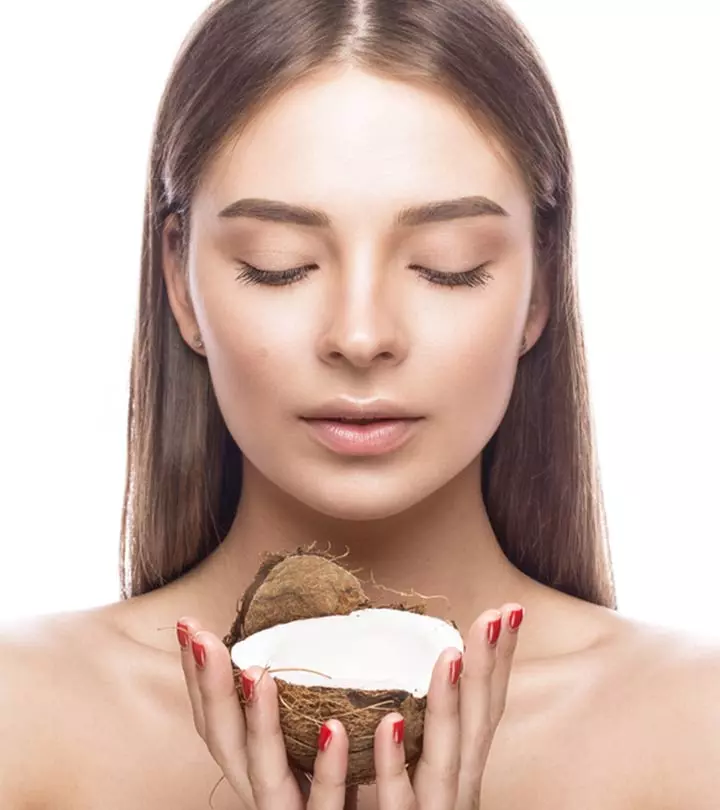


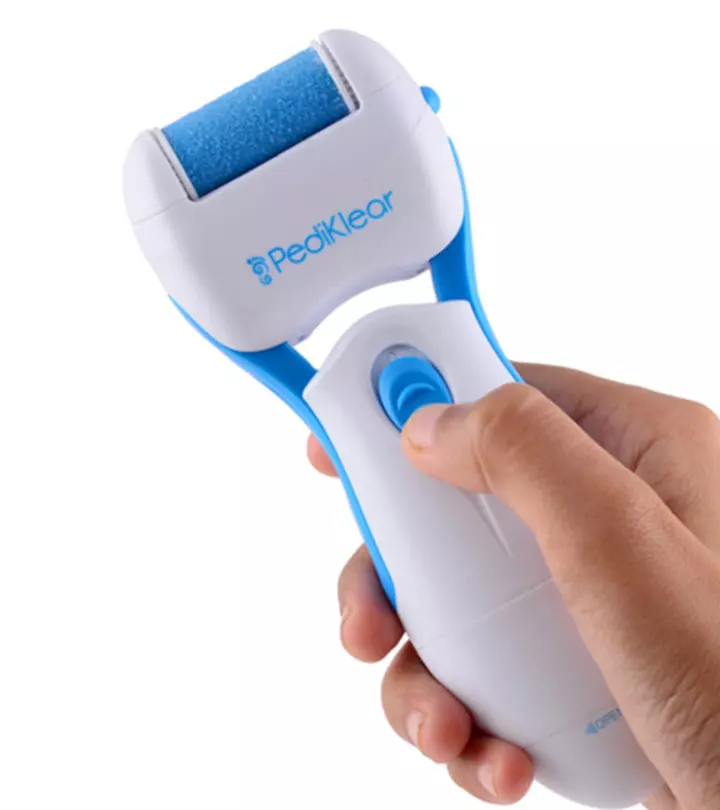
Community Experiences
Join the conversation and become a part of our empowering community! Share your stories, experiences, and insights to connect with other beauty, lifestyle, and health enthusiasts.